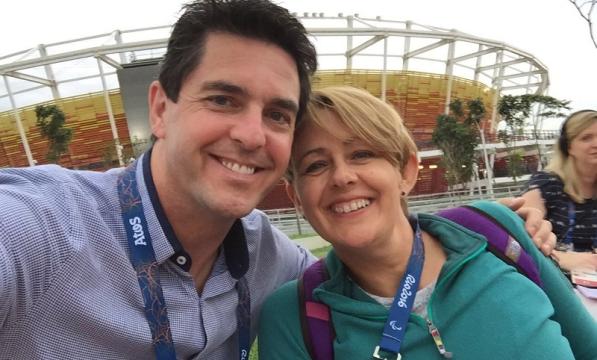Mark Colbourne MBE on Para-cycling and the Rio 2016 Paralympics

I remember in May 2009 when I suddenly became disabled in a matter of minutes due to an unforeseen paragliding crash. That thought of not having the same standard of life in the future really scared me deep down. However, thanks to the Para-cycling programme that was on offer I soon started to cycle again.
Cycling for me soon became a true lifeline as it became the only form of exercise with which I could really challenge myself to gain fitness and more freedom.
Now, four years on after the success of the London 2012 Paralympic Games, I feel I picked the right sport for my disability to win my gold medal, and it is so nice to see the amount of encouragement being offered to disabled people to take up cycling after I proved that cycling does produce inspirational people and medal winners.
This, I feel, is due to the awareness of opportunities and the cycling talent identification pathway, coupled with the large number of development centres situated across the UK that offer individuals with an impairment the chance to try out cycling for the first time.
The more that social media is used to promote Para-cycling, I am sure the quicker the message will get across to those people who really want to take advantage of the opportunity to cycle.
To date, tens of thousands of disabled people worldwide have taken to their bikes, and all thanks to the Paralympic movement.”
Mark Colbourne MBE, Cycling UK ambassador and Paralympic gold medallist
There is always negative conversation around the bad state of the roads in the UK for cyclists. However, most of the cycling disabled people in the UK participate in is actually done off-road on trails or on closed road circuits.
This brings me back to how the modern Paralympic Games now help to inspire those impaired people who really want to become mobile on a bicycle.
This was the purpose of the Paralympic Games from day one, when they were developed to offer disabled people the chance to participate in a functional activity against other people of a similar impairment. (The first Paralympic Games were held in Rome in 1960).
To date, tens of thousands of disabled people worldwide have taken to their bikes, and all thanks to the Paralympic movement.
It is also a joy to see so many youngsters at the grassroots level wanting to try out cycling in the safe and exhilarating arena that is the velodrome, hoping to emulate the many gold medal riders who have been part of ParalympicsGB over the past five Games.
Plus, every week in the UK there are more and more parents encouraging their disabled children to join cycling clubs and inclusive cycling sessions to enjoy the freedom that they obtain from cycling, which in their normal everyday environment they may not experience due to their disability.
I write this post as I sit in the warm and vibrant Rio 2016 Paralympic Park, while I watch and admire 150,000 or more people come to the Paralympics every day to celebrate Para-sport and the values of happiness and excitement it brings.
As we say – Impossible is Nothing.
Find out more about Inclusive Cycling and where your nearest centre is with Cycling UK.

